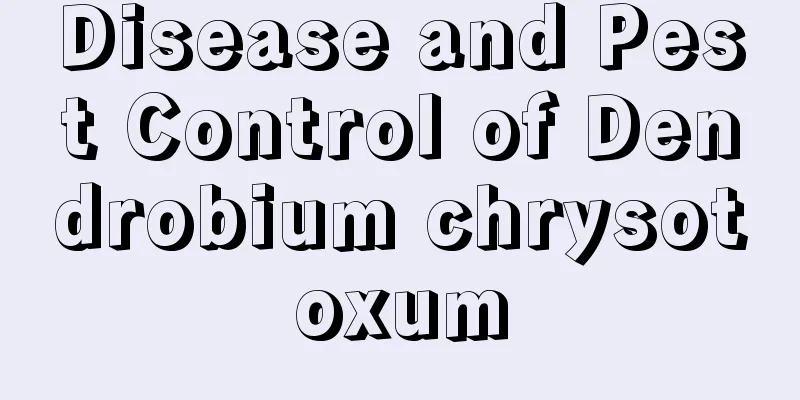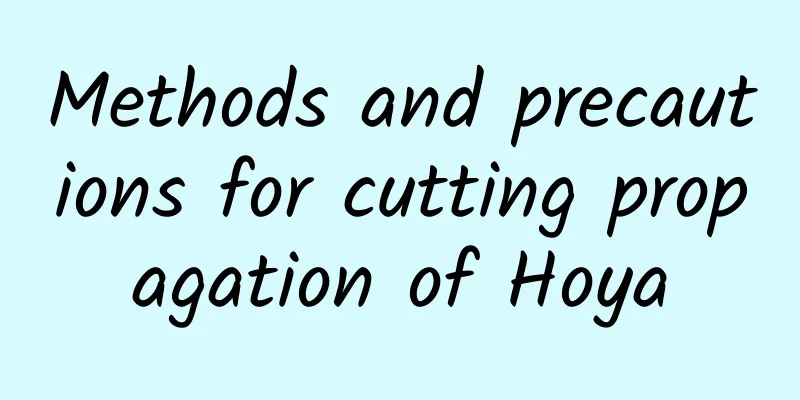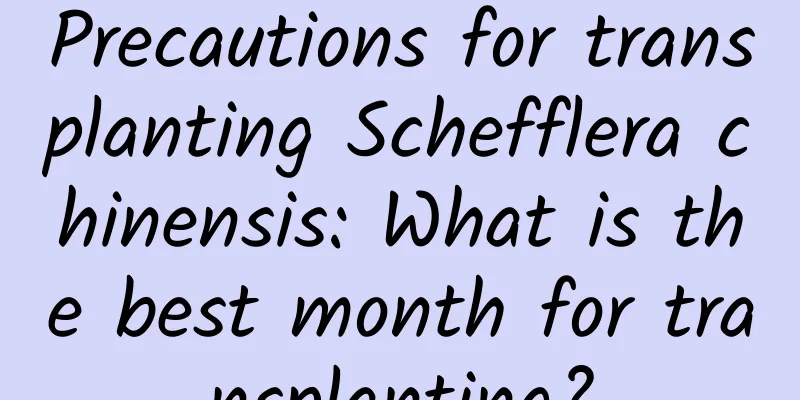Disease and Pest Control of Dendrobium chrysotoxum

1. Black spotWhen it is infected with this disease, small dark brown spots will begin to appear on its young leaves, and then the spots will be surrounded by yellow and slowly spread to the leaves. In severe cases, black spots will form patches on the leaves, and finally the leaves will begin to wither and fall off. This disease usually begins to occur in early summer, so we must take timely prevention and treatment measures. Generally, we use some special drugs to spray to prevent and control its development. 2. Soil pollutionAt the beginning, it will cover the surface of the entire plant's leaves with a layer of powdery substance similar to soot, which will seriously affect the photosynthesis of the leaves and stop the growth of the plant. Generally, the main period of occurrence of this disease is from March to May. At this time, we will find some carbendazim and make a certain mixture, and then spray it 1 to 2 times, which can kill them very well. Get a fundamental solution. 3. Philippine shield scaleThis pest mainly parasitizes on the edges or backs of the leaves of Dendrobium chrysotoxum to suck its juice, which will cause the leaves of the plant to begin to wither. In severe cases, the entire plant will die. At the same time, it can also cause new coal pollution diseases. At this time, we must take preventive measures in advance. This pest starts to lay eggs in late May. At this time, we can use some dimethoate emulsifiable concentrate to spray and kill them, and the effect is very good. There are also some that have become shield shells but are few in number. You can cut off their old branches and leaves, and then put them together and burn them to achieve complete prevention and control. 4. SnailIt mainly hides on the back of leaves to eat the flesh or bites the stems to damage the petals. This pest can occur many times a year. Once it occurs, the damage is very serious. Often the entire plant can be eaten up in one night. Then we can put some poison baits in places where they often move to kill them. In addition, it is also a good idea to sprinkle some medicines in the surrounding environment of cultivation for prevention and control. |
<<: Disease and insect pest control methods of yellow-bracted arrowroot
>>: Disease and Pest Control of Peony
Recommend
What to do if the green radish seedlings burn? How to change the soil
1. What to do if the seedlings are burned 1. Time...
What flowers are suitable for growing in Chuzhou? What are the city flowers and trees?
1. Climate characteristics of Chuzhou Chuzhou has...
How to grow Polygonatum odoratum potted plants
Polygonatum odoratum potted plant maintenance Pol...
Cultivation methods and precautions for potted bougainvillea
1. Soil It is recommended to use loose, nutritiou...
When do apricot trees bloom?
1. Flowering period The apricot tree blooms from ...
How to grow Buddha Belly Bamboo so that it will grow greener?
Buddha belly bamboo, a common bamboo plant, is no...
How often should I water the plant?
How often should I water the plant? The agave can...
When is cantaloupe planted?
Hami melon is a plant that likes heat and humidit...
What is the best season to plant golden thread vine? Golden thread vine planting time and planting method
There are four main steps to growing golden threa...
Cultivation methods and precautions of pampas grass
1. Soil Pampas grass does not have high requireme...
Remember, if you do these 7 things, your flowers will die!
1Use any soil you want! No matter what kind of fl...
How to propagate Araucaria
Seed propagation of Araucaria The seed coat of Ar...
What to do if you are poisoned by daffodils
1. Manifestations and symptoms The problems are c...
Cultivation methods and precautions of Tumi
How to propagate the tea Its commonly used propag...
What kind of grass is best for sheep to eat? They are less likely to get sick. What kind of grass should be planted to have a short harvest time?
As the saying goes: Sheep eat all kinds of grass,...









